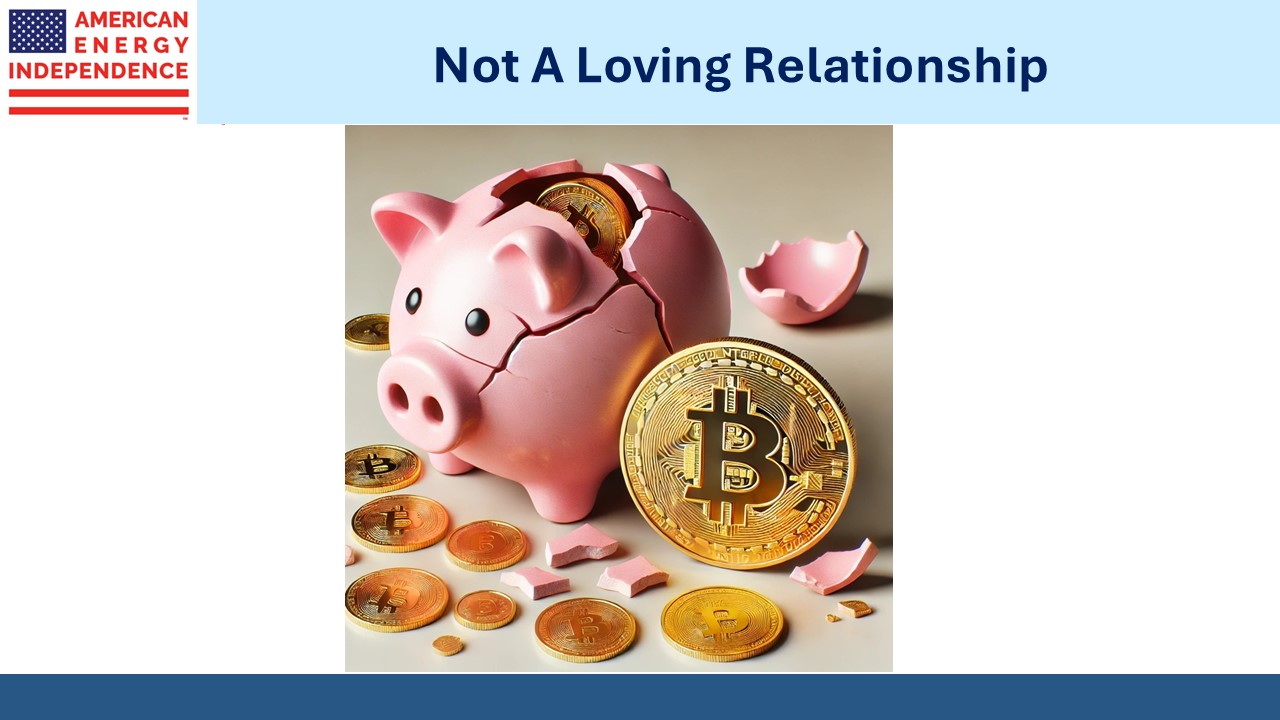The Bull Case For Bitcoin
Last year luxury car sales in Singapore collapsed. Sales of new Bentley, Ferrari, Jaguar and Rolls Royce models were down by as much as three quarters compared with 2023. This wasn’t caused by an economic slowdown. Singapore’s government clamped down on money laundering.
Most buyers of such cars are Chinese nationals. Car dealers are required to verify sources of financing for new buyers, following a money laundering scandal linked to the Chinese mainland. Vehicles obtained with illicit funds have been seized.
“Pig butchering” refers to a lonely victim who is befriended online and eventually persuaded to transfer money into an investment account – often crypto – at which point the online friendship or romance evaporates, along with the money. The rather graphic term dates back to 2016 or earlier in China.
The Chinese government eventually reacted aggressively, since its own citizens were usually the victims of schemes run by Chinese gangs. Today, a suspicious text message in China is often accompanied by a warning from the government to be careful. Police routinely visit recipients of phishing emails to verify that they haven’t been duped. Public information messages warn people to be vigilant.
Such is the intrusion of China’s security services into everyone’s life that they’re able to protect the vulnerable.
As a result, China has become a harder place for such scams. So, in recent years the industry has gone global. With English being so ubiquitous and America so rich you, dear reader, are the new target.
Scam Inc is an illuminating eight-episode podcast published by The Economist. Journalist Sue-Lin Wong describes a business sector that includes small towns dedicated to scam factories in lawless Myanmar. English-speaking Asians are held there after being kidnapped when applying for a job.
The series opens with the extraordinary story of the CEO of a small community bank in Kansas being duped into transferring $47 million to Bella, a woman he believed to be in Perth, Australia.
Heartland Tri-State Bank CEO Shane Hanes was eventually convicted of embezzlement and sentenced to 24 years. During the investigation and before he was charged, Hanes was so convinced he was involved in a legitimate business deal that he traveled to Australia to look for Bella, who was by now no longer responding to his calls or text messages.
The scamming industry is estimated by some to be worth several hundred billion dollars annually, which puts it in the same league as the illegal drug trade. Many scams go unreported because the victim is too embarrassed or believes pursuit to be futile.
This brings us to Bitcoin and the rest of the crypto industry, since without it a great deal of criminal activity could not exist.
I last criticized Bitcoin in July 2022 (see Bad Investment Ideas Still Flourish (Part 1)) when it was trading at around $24K. I have many friends who have remained that way because they ignored my advice on Bitcoin. They have sensibly concluded that any insights I might have are limited to energy infrastructure.
The list of profitable investments I have missed is a long one, and Bitcoin would not be at the top. Fortunately, I am not afflicted with FOMO (Fear Of Missing Out). Returns from energy have been more than satisfactory and I stick to what I understand.
Nonetheless, it must be said that none of the original supporting arguments for Bitcoin remain. It is not a store of value: it’s too volatile. It is not a medium of exchange: transactions costs are too high. It is not a haven during inflation: in 2022 it fell while US inflation reached 9%.
It is not safe – Tether was recently hacked for $1.5BN, reportedly by the North Korean government. But it’s also not safe from our government. In 2021 the ransom paid following a cyber-attack on the Colonial pipeline was partly recovered by the US Justice Department.
In fact, there is no point to Bitcoin except that it goes up more than down. That’s the only surviving investment case. Tether, anchored as it is to the US$, doesn’t even offer that.
Nonetheless, Bitcoin’s ascent has been sufficient to draw institutions such as Emory University to invest and the Rockefeller Foundation to consider an allocation. Rockefeller’s CIO Chun Lai, CFA said, “We don’t want to be left behind when their potential materializes dramatically.”
CFA course materials omit a chapter on FOMO, but Mr Lai thinks outside the box.
The scale of the industry uncovered by the Scam Inc podcast suggests that a substantial part of crypto activity supports scams and drugs. Victims often have to buy Bitcoin.
Chainalysis estimates that illicit crypto addresses received $40.9BN last year. This is up from 2023 but still only 0.14% of total transaction volume. However, their original 2023 estimate was $24.2BN which they now recalculate at $46.1BN. They eventually expect the 2024 figure to exceed this.
My guess is that it’s much higher, but well hidden. Bitcoin’s most valuable feature is that it’s hard to trace ownership. It was probably supporting Singapore’s luxury car market, until awkward questions were asked about source of funds.
Scams, illegal drugs and other illicit activity will probably keep increasing, along with Bitcoin. That is the investment case. Just not with my money.
We have two have funds that seek to profit from this environment:
